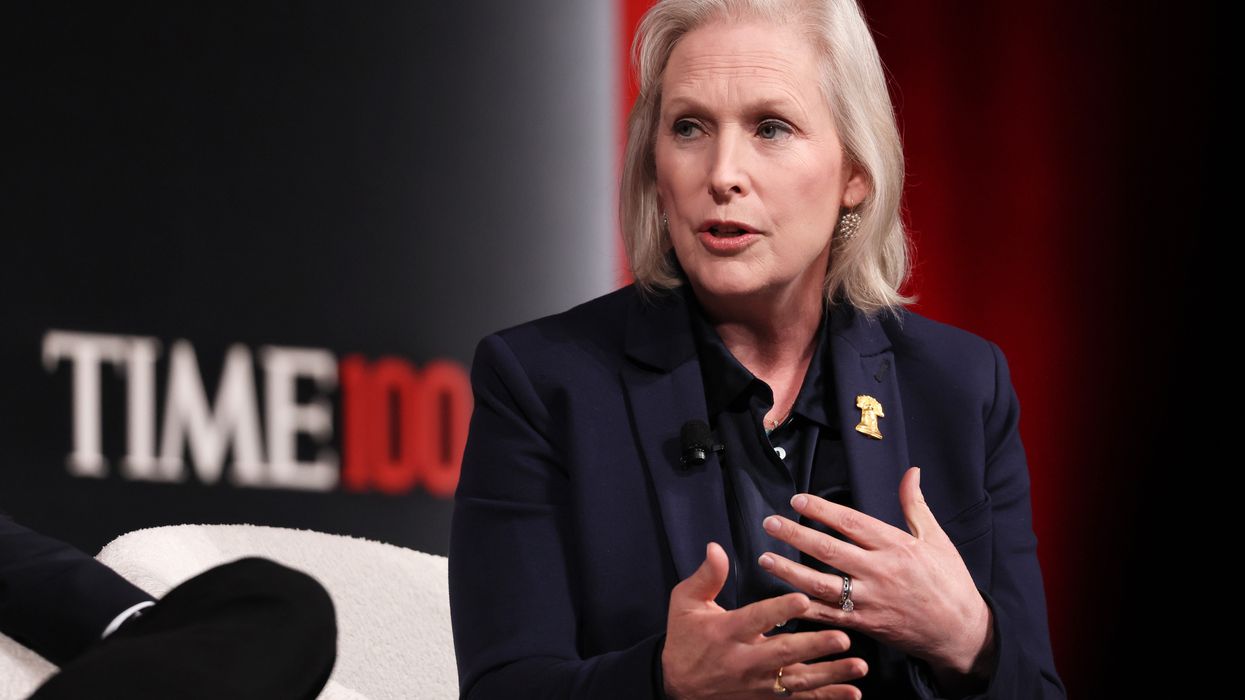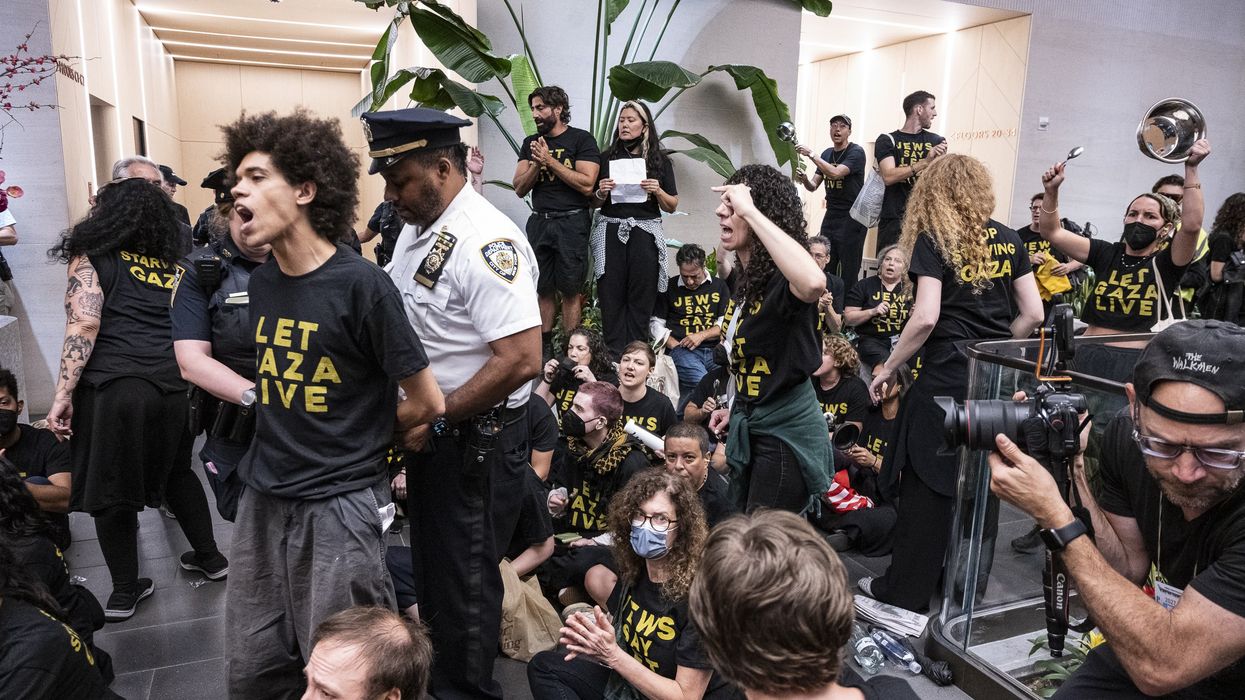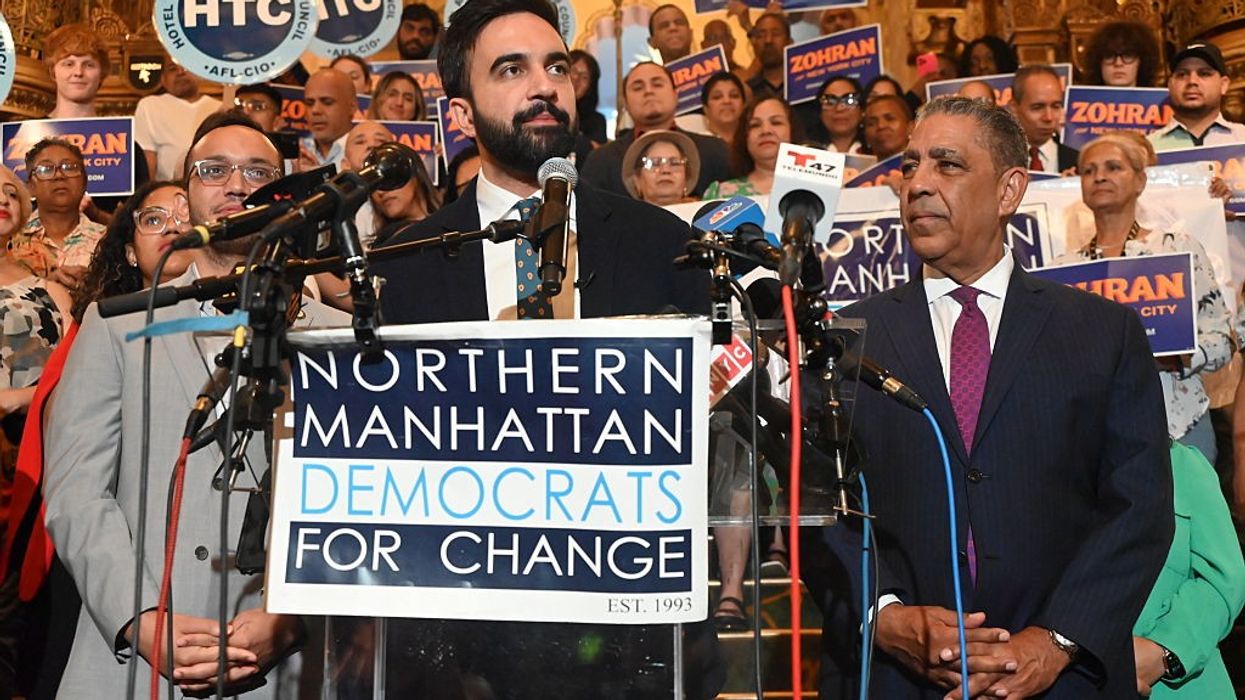Sen. Gillibrand, New Yorkers Counting on Affordable Housing Need Your Support
We need Sen. Gillibrand to come meet with us, listen to our stories, and then take them back to the negotiating table in Washington.
The cost to keep a roof over our heads is the highest recurring expense for every family. Yet, the primary source of support for people who need help with housing is on the chopping block in Congress right now.
When Sen. Kirsten Gillibrand (D-N.Y.) launched her presidential campaign, she attended our Follow Black Women town hall with 100 Black women. At the time, the rent was already too damn high, and homeownership was already out of reach. Fast-forward five years and rent is up nearly 20% overall, with some boroughs in the city seeing twice that increase. It has been over five years since we last heard from her. But given what’s happening in the federal government right now, it’s urgent that she come home and hear from us right away.
Community Voices Heard (CVH) member Fabiola is a mother of two who has lived in Housing and Urban Development-funded housing in Newburgh, New York for more than 20 years. She has dealt with health issues that are exacerbated by black mold, poor ventilation, and years of disrepair. She stays because there is literally nowhere else she can afford in Newburgh. She is not alone.
In 2023, the New York State comptroller reported that 2.9 million New York households were cost burdened, spending 30% or more of their income on housing costs. The NYC comptroller found in January 2024 that over half of all renter households—52.1%—were rent burdened.
We need each elected official at every level—DC, Albany, and City Hall—to get the message and prioritize housing policy that centers affordability, dignity, and opportunity for all Americans.
CVH member Dolores has lived in Wagner Houses in East Harlem since 2000. Before that, she was illegally evicted from her apartment in Washington Heights with her 6-year-old, and ended up homeless for nearly four years. NYC Housing Authority Section 9 has provided her and her son safe housing for 25 years. That's now under threat. She is not alone.
The number of New Yorkers aged 55 and older in the city's shelter system increased by approximately 250% between 2004 and 2017. As of 2024, more than 520,000 New Yorkers are on a wait list for affordable senior housing. Across the country, the national population of people over 65 experiencing homelessness is projected to triple by 2030. Regardless of who we voted for in 2024, I’m sure none of us voted for our seniors to spend their golden years on the streets.
Gillibrand is the ranking member of the Appropriations Subcommittee on Transportation, Housing, and Urban Development, and Related Agencies. She knows better than anyone that Republican congressional leaders have been working nonstop to unleash hell on working families. First they passed a 10-year budget plan that steals our healthcare, safety net, and public dollars and gives everything we’ve got away to greedy billionaires and corporations. And now they’re coming for the roofs over our heads—forcing us into homelessness if we can’t pay more, just to lock us up when we’re left with no choice but to sleep in cars or camp on sidewalks.
This isn’t a tall tale. It’s where we are headed—unless Gillibrand proposes a different path and uses her position to turn things around. For years, the Department of Housing and Urban Development (HUD) has helped get and keep Americans with low and fixed incomes housed. Donald Trump’s White House pushed for a 43% cut to rental assistance and housing vouchers. Mike Johnson’s (R-La.) House of Representatives passed an appropriations budget that cuts HUD’s fair housing activities by 67%. These nightmarish proposals are the starting point for negotiating a final appropriations budget. So we need Sen. Gillibrand to come meet with us, listen to our stories, and then take them back to the negotiating table in Washington.
Around 74% of Americans believe the current economic situation is making housing less affordable. And the current economic situation is hitting some of us especially hard. Black women lost 319,000 jobs in the public and private sectors between February and July, more than any other group. Yet despite being hit with the worst of it, Black women overwhelmingly want solutions for everyone. Regardless of race, gender, or zip code, we know that more affordable housing means stronger, safer, more stable communities.
We need each elected official at every level—DC, Albany, and City Hall—to get the message and prioritize housing policy that centers affordability, dignity, and opportunity for all Americans. That said, it’s long past time for Sen. Gillibrand—who ran for president on a platform revolving around a Family Bill of Rights—to step it up.
If she doesn’t fight for us today, it won’t matter if she comes calling to ask for a donation, an endorsement, or a vote tomorrow, because we will have lost our homes.


 Around 200 protesters gathered at the Manhattan offices of U.S. Sens. Kirsten Gillibrand and Chuck Schumer, both New York Democrats, on August 1, 2025. (Photo: Ken Schles/Jewish Voice for Peace)
Around 200 protesters gathered at the Manhattan offices of U.S. Sens. Kirsten Gillibrand and Chuck Schumer, both New York Democrats, on August 1, 2025. (Photo: Ken Schles/Jewish Voice for Peace)